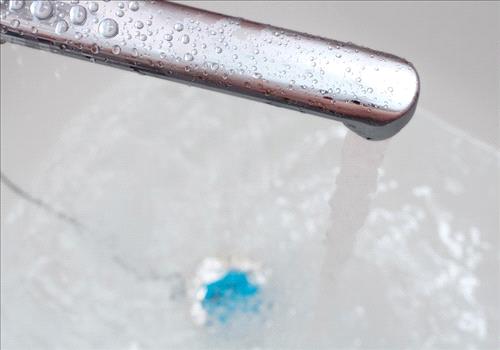Ammon News - AMMONNEWS - Amajor trilateral water understanding signed by Israeli, Jordanian and Palestinian parties in December is moving forward slowly but surely – as tender preparations for an Aqaba desalination facility begin to materialize .
The project in question involves a memorandum of understanding signed on December 9, 2013, in which senior officials from the three governments met at the World Bank headquarters in Washington to advance cross-border water swaps and an eventual funneling of Red Sea brines to a shrinking Dead Sea.
A key component of the agreement is the development of an 80 million cubic meter desalination plant in Aqaba, from which Israel would be able to buy 50 to 60 percent of the water. In return, Jordan would be able to buy an additional 50 million cu.m. of water from Lake Kinneret (the Sea of Galilee) annually, roughly double the current allocation, and Israel would allow the direct sale of an additional 20-30 million cu.m. of water from the Mekorot national water company to the Palestinian Authority.
The understanding also calls for a 200-kilometer pipeline to carry residual salt brines from the desalination process to the Dead Sea, in order to boost the water levels in a depleted reservoir.
Israeli sources directly involved in the efforts spoke the Post on the sidelines of a water conference in England last week. Follow-up on the memorandum and negotiations with the Jordanian parties about the details of the project are ongoing, and the cross-border team is beginning to prepare the tender to an executor for the desalination plant, the sources explained.
While such an advance might seem insignificant in a traditional business arena, this step forward is considerable within the framework of Israeli-Jordanian-Palestinian cooperation, the sources emphasized.
“The fact that we managed to make it a joint project is not trivial at all,” they said.
Israeli sources estimated that two years will be required for the creation of the desalination plant tender, followed by three or four years for the facility’s completion. Building the desalination plant can occur simultaneously with the Red Sea to Dead Sea pipeline construction.
In an interview with the Post at a conference in Jordan in May, secretary- general of the Jordan Valley Authority Saad Abu Hammour – who served as Jordan’s representative to December’s negotiations – confirmed that his government was working with international consultants to prepare a build-operate- transfer tender for the desalination facility. Jordan hopes to increase the desalination capacity of the plant in the future, according to Abu Hammour.
While the Israeli purchase of the desalinated water generated by the future Aqaba facility can largely pay for the plant’s establishment, the creation of the 200-kilometer pipeline will be provide a much greater financial challenge. Abu Hammour said in May that Jordanian government officials were actively seeking the $350 million needed for the pipeline from a variety of countries.
At last week’s conference in England, the Israeli sources told the Post that Israel has already begun enforcing its contribution to the memorandum of understanding, by increasing sales of Lake Kinneret water to Jordan by an additional 12 million cu.m.
At this point, the transfer of the additional 50 million cu.m. is still impossible due to the need for an infrastructural upgrade on the Jordanian side.
In May, Abu Hammour stressed that despite the failing peace negotiations between the Israelis and the Palestinians, it was crucial for environmental cooperation among the region’s players to move forward.
The water project, he explained at the time, “should not go to the level of politics.”
Dr. Hakam Alami, water and sanitation adviser to Jordanian Prince Hassan bin Talal, likewise spoke with the Post at last week’s conference in England about water cooperation as a driver for peace. While peace and water cooperation should ideally move forward simultaneously, he said, Alami stressed how urgent the need to solve water scarcity issues in the region remains.
The creation of a trilateral committee potentially under the supervision of the United Nations and/ or non-governmental organizations could be the ideal mechanism to solve urgent water crises, he said.
While a Joint Water Committee including Israeli, Palestinian and Jordanian representatives was established following the 1994 Oslo II Accord – originally as a temporary bridge among the parties – today experts from all sides slam the committee as largely dysfunctional.
“I want us to reach a certain aim, which is a peaceful environment, a green economy,” Alami said.
Looking at December’s memorandum of understanding for cross-border water swapping and sharing, he stressed he felt confident that the parties could “still get a win-win situation.”
“Let Israel benefit, let Palestine benefit, let Jordan benefit as well,” Alami added.
Although agreeing that many cross-border projects on water can and should take place, MK Avishay Braverman (Labor) told the Post that water issues cannot be solved separately from the region’s political issues.
“The political question will to move to a two-state solution,” Braverman said on the sidelines of the conference. “The water issue is only a derivative.”
Once a political agreement occurs, solutions for water management and distribution will be much easier to solve, he explained.
“Water is an excuse for war,” Braverman said. “It’s not a reason for war.”
*Jerusalem Post
